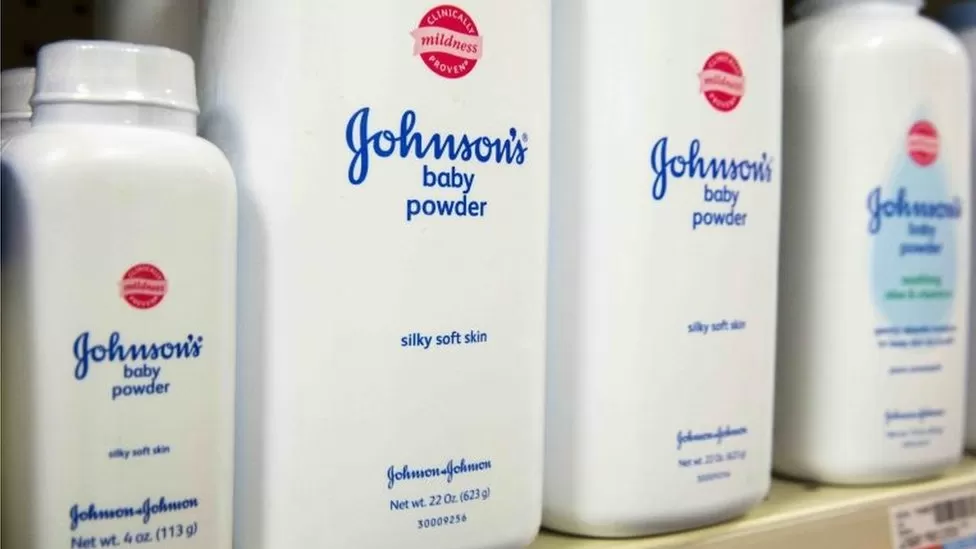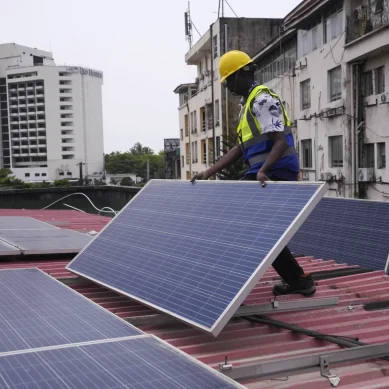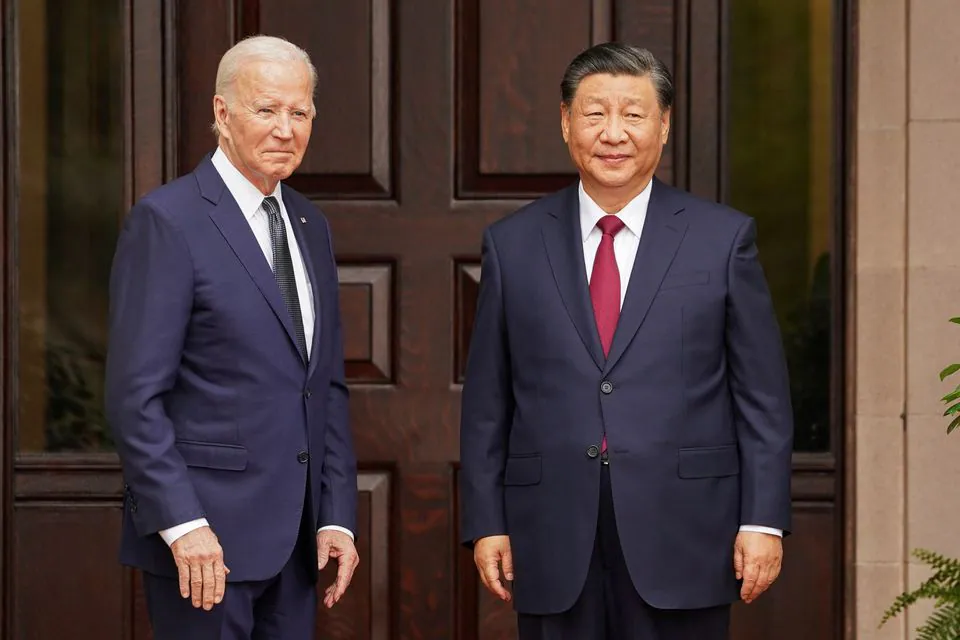
In its second filing in court, Johnson&Johnson proposed to pay claimants $8.9 billion, which would have been one of the largest consumer settlements in US history. Courts rejected both bankruptcy claims filed by LTL Management, on the grounds that the company was not in financial distress.
The company plans to appeal its case to the US Supreme Court. Some influential Members of Congress objected to J&J’s bankruptcy manoeuvre.
“A fundamental principle of our legal system is that people who have been harmed due to fraud, intentional misrepresentation, or the marketing and distribution of dangerous products have a right to seek restitution,” wrote the chairs of the Senate Judiciary Committee and House Oversight and Reform Committee and colleagues in a November 2021 letter to J&J CEO Alex Gorsky.
They said the company was “attempting to deny tens of thousands of people their day in court … and leave cancer-victim claimants with pennies on the dollar.”
US Representative Jerry Nadler (Democratic-New York), ranking member of the House Judiciary Committee, introduced the Nondebtor Release Prohibition Act in 2021, seeking to prevent companies from abusing bankruptcy laws.
Sponsors of the bill condemned J&J’s use of bankruptcy to evade accountability for talc cancer claims.
“Just like the Sacklers, who are using a legal loophole to escape accountability for their role in the opioid epidemic, Johnson & Johnson is blatantly abusing our bankruptcy system in a way that protects the wealthy and giant corporations, and stiffs the ordinary Americans who they have harmed,” said US Representative Carolyn B. Maloney (Democratic-New York), chairwoman of the House Committee on Oversight and Reform.
More than 40 health and consumer groups endorsed the bill, noting that, “Unless Congress acts, we can expect other corporations engaged in misconduct to use these same brazen legal manoeuvres to cover-up wrongdoing, escape responsibility, and defraud victims.”
In an October third-quarter earnings call, J&J’s Worldwide Vice President of Litigation Erik Haas described the company’s four-pronged strategy for dealing with talc litigation. The company will:
Appeal its failed Texas Two-Step bankruptcy attempts to the US Supreme Court.
Pursue a “consensual resolution” bankruptcy filing with a proposed settlement to be voted on by plaintiffs.
Continue to “vigorously defend the meritless talc claims” in court. Haas referred to a recent New Jersey appellate court decision to toss out a $223.8 million talc powder verdict against J&J on the grounds that a lower court judge should not have allowed some of the scientific expert testimony presented by the plaintiffs.
Pursue “affirmative litigation” in federal district court. As part of its legal strategy, J&J is initiating lawsuits against medical researchers. J&J’s talc subsidiary, LTL Management, filed two lawsuits this year against doctors for publishing studies citing a link between talc-based powders and cancer. The company said the doctors made false claims that damaged its reputation.
In July, the J&J sued medical doctors Richard Lawrence Kradin, Theresa Swain Emory and John Coulter Maddox over their 2020 study in the American Journal of Industrial Medicine linking cosmetic talc use with malignant mesothelioma.
In a separate lawsuit in May, J&J sued medical doctor Jacqueline Miriam Moline over her 2020 study in the Journal of Occupational Environmental Medicine.
Both studies described cases of malignant mesothelioma among people with no known asbestos exposure other than cosmetic talcum powder; researchers examined bodily tissues from a subset of people in their studies and reported finding asbestiform fibres of the type found in cosmetic talc.
In September, Moline asked a court to throw out the lawsuit against her, arguing that her research is sound and protected by free speech rights. She told the court the lawsuit was an effort to “intimidate” medical and scientific experts.
Is Johnson’s Baby Powder with talc still available for sale?
J&J said in May 2020 that it would discontinue sales of talc-based baby powders in the US and Canada and replace them with cornstarch-based baby powders. The company said talc powders would “continue to be sold in other markets around the world where there is significantly higher demand for the product.”
After a campaign led by Black Women for Wellness and a shareholder effort in 2022, J&J said it would discontinue sales globally of talc-based powders as of 2023.
Rather than pull products from shelves, the company said it will continue to sell existing inventory of talc powders “until it runs out.” As of 2023, some talc-based Johnson’s Baby Powder products are still available for sale in some stores and via Amazon.
J&J has a long history of promoting unsafe products to vulnerable populations. In 2019, the Wall Street Journal reported that Johnson & Johnson is “facing lawsuits from more than 100,000 plaintiffs over its product safety and marketing tactics.”
The company is taking an aggressive strategy of battling many cases in court, the Journal reported: “And it is losing. A lot.”
“Juries and judges have ordered the health-products giant to pay billions of dollars in several recent trials over claims that J&J’s signature baby powder and certain drugs and medical devices injured people, and that its marketing practices fuelled the opioid-addiction epidemic,” wrote Peter Loftus.
Here are some of the legal actions and scandals involving the company’s products and practices:
Opioid Epidemic: Johnson & Johnson was among several pharmaceutical companies sued by various states and municipalities “for its contribution to an epidemic of prescription and street opioid abuse that has killed more than 800,000 Americans in the past 20 years, according to the Centres for Disease Control and Prevention,” The New York Times reported.
In February 2022, J&J and three major pharmaceutical distributors finalised nationwide settlements clearing the way for “$26 billion to flow to nearly every state and local government in the US,” The Associated Press reported. J&J said in a statement that it will contribute “up to $5 billion to the nationwide settlement, which is designed to directly support state and local efforts to make meaningful progress in addressing the opioid crisis in the United States.”
For more details on the opioids investigation, litigation and settlements, see the National Association of Attorneys General page on opioids.
Risperdal: Johnson & Johnson’s subsidiary, Janssen Pharmaceuticals, faced lawsuits related to its antipsychotic drug Risperdal. The company was accused of downplaying the risks of gynecomastia (male breast growth) in young boys and not properly disclosing side effects. Several multi-million-dollar settlements were reached.
In October 2019, a Philadelphia jury awarded $8 billion in punitive damages to a man claiming his use of Risperdal when he was a boy caused abnormal breast enlargement.
For a deep dive into the Risperdal lawsuits, see Steven Brill’s reporting on America’s Most Admired Lawbreaker. Brill reports, “Over the course of 20 years, Johnson & Johnson created a powerful drug, promoted it illegally to children and the elderly, covered up the side effects and made billions of dollars.” The article explains the financial incentives corporations like J&J have for paying settlements and jury awards, rather than taking dangerous products off the shelves.
Transvaginal mesh products: Johnson & Johnson and its subsidiary, Ethicon, have faced numerous lawsuits over transvaginal mesh products used to treat pelvic organ prolapse and urinary incontinence. These lawsuits allege that these products have produced serious complications and injuries for some patients. J&J and Ethicon have settled thousands of cases.
In 2019 the companies agreed to pay nearly $117 million to resolve allegations that they deceptively marketed the vaginal mesh devices, according to state attorney generals involved in the case.
“Companies have a responsibility to fully disclose the risks associated with their products. Johnson & Johnson and its subsidiary were aware of possible serious medical complications associated with transvaginal surgical mesh, but they did not warn consumers,” said Josh Shapiro, who was Pennsylvania Attorney General at that time.
In February, the US Supreme Court let stand a $302 million judgment against J&J in a lawsuit brought by the state of California accusing the company of concealing the risks of its pelvic mesh products, Reuters reported.
DePuy hip implants: J&J subsidiary, DePuy Orthopaedics, faced lawsuits over its metal-on-metal hip implants which were alleged to have a high failure rate, causing severe complications.
In 2013, J&J agreed to pay $2.5 billion to an estimated 8,000 patients “who have been forced to have the all-metal artificial hip removed and replaced with another device,” the Times reported. The company agreed to also pay all medical costs related to the procedures.
As of 2019, J&J had paid about $1 billion to settle the hip implant lawsuits, with 95% of the cases settled, Bloomberg reported.
Xarelto: J&J faced lawsuits related to their blood-thinning drug, Xarelto. The plaintiffs alleged that the drug caused severe bleeding events and that the companies did not provide adequate warnings about these risks. Some of these lawsuits resulted in settlements. In March 2019, J&J and Bayer said they had agreed to pay $775 million to settle about 25,000 lawsuits involving Xarelto, which they jointly sell, the Times reported.
Invokana: J&J’s Janssen Pharmaceuticals faced lawsuits over its diabetes drug, Invokana. The drug has been linked to diabetic ketoacidosis, kidney failure and an increased risk for amputations of the leg, foot and toes.
FDA began investigating these concerns in 2016 and required a black box warning on the product in 2017, confirming an “increased risk of leg and foot amputations with the diabetes medicine canagliflozin (Invokana, Invokamet, Invokamet XR).”
An investigation for Reuters by Chad Terhune and Robin Respaut found that “as red flags multiplied,” J&J “kept quiet” for years about the risks of its diabetes drug.
“Based on interviews with several former J&J employees and a review of company documents … Reuters found that in the five years prior to regulators’ intervention, J&J was repeatedly alerted to Invokana’s ketoacidosis risk and took no action. …” Terhune and Respaut wrote.
“Later, as injury reports piled up, J&J executives repeatedly overruled safety concerns raised internally, leaving doctors and patients in the dark about the health risk … All the while, J&J poured tens of millions of dollars into marketing Invokana as a safe, effective treatment for millions of people with type 2 diabetes.”
In October 2018, J&J and Janssen Pharmaceuticals agreed to settle more than 1,000 Invokana cases for an undisclosed amount.
Partners with EcoHealth Alliance: J&J partners with the EcoHealth Alliance, a funder of the Wuhan Institute of Virology, which is at the centre of the controversy over the origins of COVID-19. See our reporting on EcoHealth Alliance here.
- The Defender report











